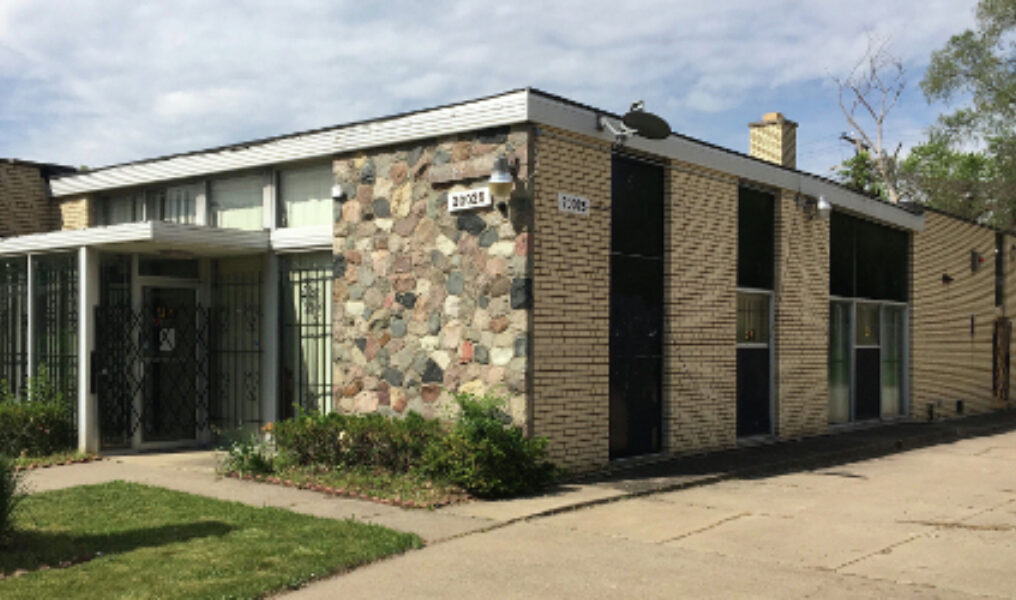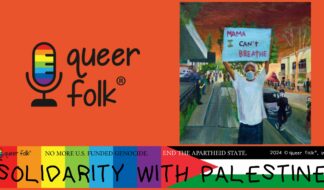Increased Risk
Stay-at-home orders designed to prevent the spread of the novel coronavirus have had some unintended victims: namely, those at risk of intimate partner violence who are forced to isolate with their abuser. And for those in the LGBTQ community, the fact that intimate partner violence is an even greater taboo topic of conversation than it is for the heterosexual community can exacerbate the situation.
"When they put the stay-at-home order in place, they didn't really think about what that meant for some people in the community and what a safe home actually looks like," said Chunnika Hodges, community advocate and counselor for Healing and Support Services at LGBT Detroit. "Everybody can't be in a safe home. Domestic violence could take place, coercion, all of that. Control tactics could take place."
She explained that the increased isolation gives the perpetrator more control over the "victim/survivor" that makes it even more difficult to leave.
Overall, LGBTQ people face similar-to-higher rates of intimate partner violence than the straight community, according to a Williams Institute report of existing research. And Hodges agreed that violence among LGBTQ partners is a topic that's too often not discussed. Largely, it has to do with societal expectations of gender roles.
"I think [it's because of] the stigma that's placed upon the community due to our own societal norms when it thinks about gender roles, when it thinks about who could be the abuser and who's not the abuser," Hodges said. "Most of the time, they don't think women can be the abuser in the relationship, especially when it comes to the bisexual and lesbian community."
Then there is the fact that few men report their abuse.
"Many indicate they cannot go to family since they do not know about their relationship or their sexual orientation," Hodges said.
The lack of visibility of LGBTQ individuals means that there are few role models for healthy relationships, she added. And that there are few leaders in the community who speak about intimate partner violence or what a healthy relationship looks like can make it harder to know where to seek help.
Other compounding factors might include one's own shame or questioning about being LGBTQ. That can feed into the abuser using manipulation and emotional abuse in order to lower the self-esteem of the victim. And if they are able to escape, the abused individual may not find programs that are appropriate for, or service providers that are competent to, assist LGBTQ people.
"There's a blanket approach across the whole system when it comes to that community violence," Hodges said. "So a lot of the hospital staff, they're not trained or culturally competent to provide those services for the LGBT community. Or they're not believed … or it's just the lack of the staff and their ability to treat them as human beings, before they even see sex or gender or orientation. And that goes the same with the law enforcement, because the lens that they're looking through is not an advocacy lens, so they're just on a protocol lens…"
In other words, first responders may only be focused on procedure, not on being sensitive to, or advocating for, an individual's needs.
Where to Find Help
In light of the quarantine, escaping an abusive home situation is especially difficult, and Hodges emphasized that even a caring friend can only be there to provide support.
"From what I've seen in my own personal experience, when they're ready to leave, they will leave," she said.
At the same time, resources are available, and they can be found on the LGBT Detroit website: lgbtdetroit.org. Find additional information under the Get Help tab that includes its support line, 313-397-2127, and an email form as well. Due to the pandemic, the phone line is only taking voicemail right now. Callers can expect a call back within 24 hours. Hodges also mentioned Turning Point, First Step and Wayne County Safe as resources to which LGBT Detroit refers individuals.
As the community remains under some level of quarantine, it is especially timely that LGBT Detroit recently introduced a new community education forum.
"A guiding board on intimate partner health and wellness has been developed to advocate for the community and seek community feedback centering clinical and educational service needs," said Kali Stanton, program coordinator for Healing and Support Services in a press release. "More importantly, The Council is a space for the community to grow, learn, and heal together through the use of arts and conversation."
The Council is led by a team of community members, artists, advocates and self-identified healers.
The first forum was held on May 15, and it was designed for the community to meet the council members. "The Council Listens" broadcasts Friday, June 12 at 1 p.m. Tune in on Facebook Live or Zoom. A third is scheduled for Friday, July 10. Follow the LGBT Detroit Facebook page for more information at facebook.com/lgbtdetroit/.
Hodges stressed that anyone can join in the meetings and referrals outside the capacity of LGBT Detroit will be provided if needed. She said it's a safe place that takes a holistic approach "to have those healthy conversations and break down those taboos when it comes to healthy intimate partner relationships and what those look like and what community healing looks like. But more so to break down those taboo topics of intimate partner violence and break down those stigmas."










